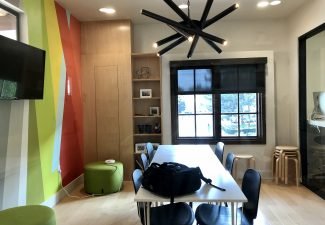According to the Substance Abuse and Mental Health Services Administration in a study done in 2014, about 13 percent of Asian-Americans suffer from a diagnosable mental health illness.
The Asian and Pacific Islander community at Vanguard represents around 4 percent of the total population according to the Office of Institutional Research.
When looking at the number of college students who have a diagnosable mental health illness the number skyrockets to one in every four. The Asian and Pacific Islander Club (APIC) has taken this issue into their own hands by hosting a panel on mental health in regards to Vanguard students.
APIC celebrates and explores the culture of Asian and Pacific Islander students. The APIC had an hour-long discussion panel in the Price Room and consisted of student panelists. The panel focused their discussion on mental health and mental health resources at Vanguard and through Orange County as well as the sharing of personal experiences of the panelists and audience.
Part of this 4 percent of Vanguard students is Patrick Figalan, a freshman of Filipino descent, who was also one of the panelists.
According to Figalan, one of the problems of having such a small amount of Asian and Pacific Islanders at Vanguard is finding others who share similar experiences.
“It can be hard to find people going through the same things as you or who can relate to your situation when they don’t have the same cultural background,” Filagan said.
Even within the small percent of Vanguards population being Asian and Pacific Islanders—with ethnic backgrounds ranging from Indian to Chinese to Samoan—it yields difficulty in finding someone to genuinely relate to on a personal level within their own cultural subset.
“The Asian American community there is a tendency to internalize any mental health issues more than in other cultures” said Figalan.
Giving people a safe space to talk about problems that are affecting them, and others was another positive that came out of the panel.
“One of the positives to come out of the panel was being able to listen to other people’s story’s and issues and have a group of people to be able to self-disclose too,” Filagan said.
The main point that Figalan wanted the audience to take away from the panel is something he learned working through his own experiences.
“Talking about the tough things in life and letting people help with our emotional, psychological, and social well-being” said Figalan.
Asian Americans students are less likely to seek help for their emotional or mental health problems than Caucasian students, according to preliminary data from the National Latino and Asian American Study. This was the reality for Asian-American students Amanda Chan and Caleb Myers as well.
“Mental health amongst Asians and Asian Americans is something that doesn’t often get talked about” said Amanda Chen, “When it is talked about it within the family it is often discussed in a negative light.”
The lack of conversation in Asian-American households have led to little reporting and led to little information regarding them.
Freshman Caleb Myers had first-hand experience with this in his own family.
“One of my aunts suffered from depression for years before speaking up about it and finally going to get counseling.”
Meyer’s aunt is in her mid-forties and has a considerable amount of resources at her disposal when comparing them to college students.
One of the resources here at Vanguard that is available for students who are having trouble, or just having questions about mental health, is the Counseling Center and the therapists they provide. With individual counseling, group counseling and many other services the Counseling Center is a great way to open up to someone in a professional setting especially if the information talked about would be best kept confidential.
Another affordable and confidential option for someone who might not feel comfortable with talking to someone at Vanguard, is the National Association on Mental Illness (NAMI) offices in Santa Ana, about a 10-minute drive from Vanguard. More information on NAMI can be found by calling (714) 544-8488 or visiting their website http://www.namioc.org.

 The Inspirational Story of Pelé
The Inspirational Story of Pelé Movember: Mustaches With a Purpose
Movember: Mustaches With a Purpose Swap Meet Secrets Will “Save” Students
Swap Meet Secrets Will “Save” Students Communications Department Brings Course Changes
Communications Department Brings Course Changes
Leave a Reply